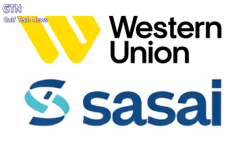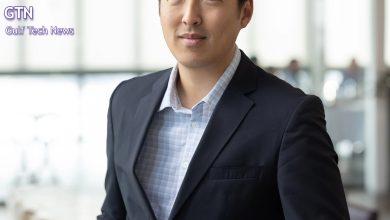Governments propel cybersecurity conversations on multi-layered defence strategies at GISEC Global in Dubai
- The second day of the annual event put the spotlight on governments, with top officials from the UAE and around the world taking to the stage at Dubai World Trade Centre.
Governments and their roles in adopting a multi-layered approach to cybersecurity was at the top of the agenda on the second day of GISEC Global 2025, the world’s third-largest cybersecurity event, and biggest in the MENA region.
Following a successful opening day on Tuesday, the Dubai World Trade Centre once again welcomed more than 25,000 visitors from over 160 countries including 450 global CISOs for day two of the mega event, held under the theme of ‘Securing an AI-Powered Future.’
With the Microsoft Digital Defense Report 2024 showing that governments are the third most-targeted sector globally by nation-state threat actors, GISEC Global saw the Global Cybersecurity Congress open with H.E. Dr Mohamed Al-Kuwaiti, Head of the UAE Cybersecurity Council, re-emphasising the need for a collective effort to strengthen the global industry and shape its future policies.
‘A collective effort is fundamental to defeat cyber criminals’
Addressing the audience in his opening speech, he stated: “Cyberattacks do not distinguish between governments, entities and people, they simply attack. That can cost a significant amount of money, or even impact national security. This is why we need to partner as we cannot do this ourselves and why partnership is the main pillar of resiliency.”
H.E. Dr Mohamed Al-Kuwaiti was also part of an insightful panel discussion, joining top officials from a diverse range of businesses in the industry to explore cutting-edge research, public-private partnerships and talent development to tackle evolving cyber threats.
The panel included Pei Ling Lee, Head of Cyber Strategy and Capabilities Development of Interpol. Responsible for driving Interpol’s cybercrime-fighting mandate and strategic objectives and priorities under its Global Cybercrime Programme, she believes it’s essential that more meaningful dialogue takes place to positively impact the industry around the world.
She said: “Of course, training is a very important part but, at Interpol, we also realise there is a need to promote better coordination between law enforcement and entities that are dealing with cybersecurity issues. Therefore, there is more importance on collaboration between international organisations so people can share their expertise with each other, which can be implemented at national levels.”
‘Waiting is no longer an option – we need to take the quantum leap now’
Afra Ibrahim Bin Fares, Senior Policy & Regulations Affairs Executive at Dubai Electronic Security Center (DESC), also delivered an insightful presentation that explored the steps being taken by the government entity in preparing for the quantum leap.
The cybersecurity researcher, who specialises in data security and zero-trust architecture and contributes to Dubai’s cyber resilience, highlighted DESC’s Quantum Cybersecurity Readiness Guidelines, a valuable document to help guide technology providers and entities under DESC’s law. It also provides a strategic framework for assessing and preparing quantum-safe security measures, while supporting the development of a transition roadmap to ensure resilience against emerging quantum computing threats.
As technology continues to rapidly advance, she warned that governments and technology providers cannot afford to wait any longer if they want to avoid situations that could have far-reaching consequences.
She said: “We are on the verge of a new technology revolution – the quantum revolution that will dramatically change our work. Dubai government is positioning itself as one of the pioneers in the Middle East for quantum guidelines and I want to emphasise that quantum is not on the horizon and it is closer than we think. Waiting is no longer an option and it’s time to act and prepare and take on the quantum leap now.”
Looking beyond the Middle East, Jin Young Oh, Vice President of Korea Internet & Security Agency (KISA), explained how the government entity is driving South Korea’s digital trust and internet safety across Asia’s most connected nation.
He highlighted Generative AI, Supply Chain, Cloud Security, AI Cloud Security, Zero-Trust, Cyber Resilience, Proactive Security, Mobility Security, Spam and Phishing and Quantum as KISA’s top 10 cybersecurity issues that they are working on, while efforts are being made in both product development and field testing of prototypes to integrate AI.
Hosted by the UAE Cyber Security Council, and supported by DESC, the UAE Ministry of Interior and Dubai Police, GISEC Global 2025 will come to a close on Thursday. As well as more engaging panel discussions and debates that will shape the future of cybersecurity, the final of the GISEC North Star pitch competition will be held as top innovators present their groundbreaking solutions to a panel of industry leaders.
The event has brought together some of the leading players in the industry, including Huawei, AWS, Microsoft, Google Cloud Security, CISCO, Deloitte, Kaspersky, Check Point, Cloudflare and Honeywell, alongside groundbreaking cybersecurity companies Spire Solutions, CPX, CyberKnight, LinkShadow, OPSWAT, Qualys, CrowdStrike and StrikeReady.



